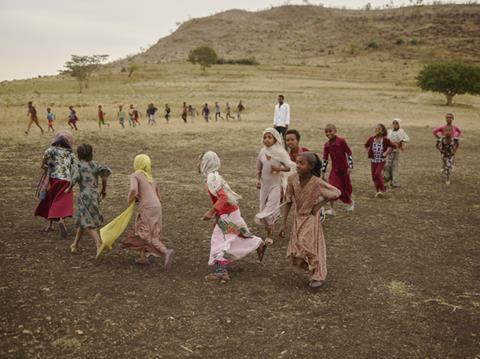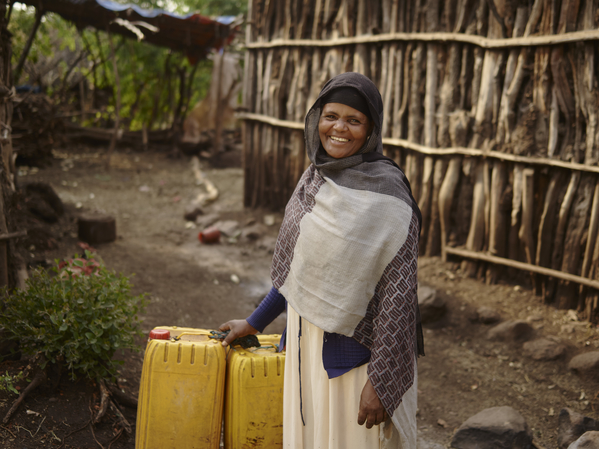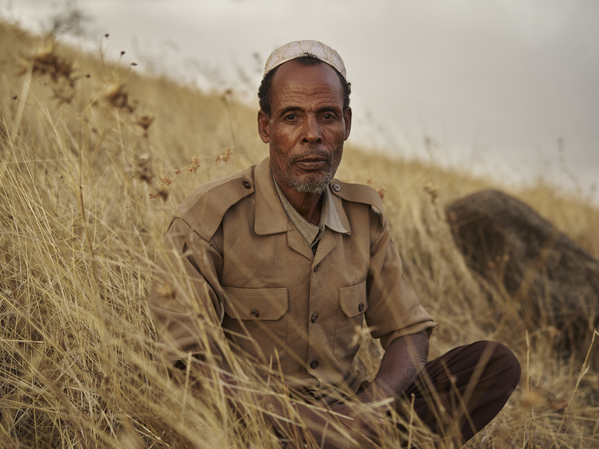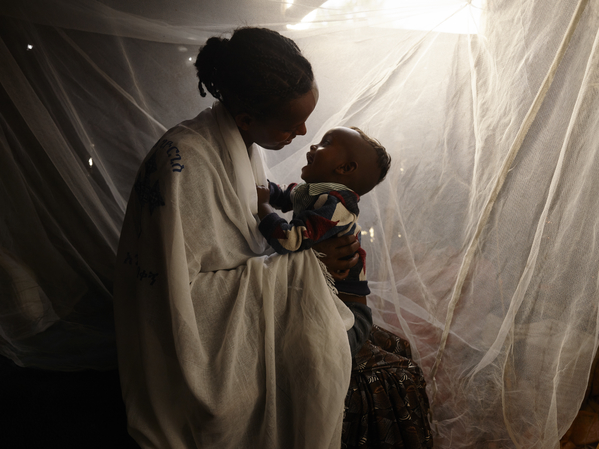
This year, we have seen people come together to show unprecedented acts of kindness and solidarity in the midst of the global pandemic. For the people of Frat in western Ethiopia, this ethos of togetherness is a way of life. They call it “wenfell”, meaning ‘collaboration’.
Christians and Muslims live side by side, celebrating special events together, neighbours support each other with their farming, women collect money to help any family when in need, men help women collect water although it’s traditionally a task carried out by women, and water is shared if people are unable to collect it. Many of the community came to Frat in the famine of 1983-85, and have supported each other ever since.
However, a lack of basic facilities like clean water, exacerbated by the changing climate, poses insurmountable challenges. Families spend hours each day collecting dirty water from a river, which often causes sickness. Some water sources are depleting over time, while the hotter summers and unexpected storms destroy crops, their only source of income.??
Irrespective of religion, ethnicity or background, the villagers in Frat have put togetherness at the heart of their community, creating good in the face of this adversity.

Hawa Yiman-Mohamad, 44, who came here aged six at the time of the famine and is chair of the community’s women’s groups, says:
“The biggest problem facing our community is the lack of water and electricity. Men and women have to work together and help each other. I always made my son and daughters take turns when collecting water, so we all help.
“We have Muslim and Christian women’s groups, but we share information and the money we collect between us. I have represented the women’s groups with the local government. It makes me happy that I have helped my community.”

Aliy Abebe, Hawa’s older brother, is a Muslim leader and promotes harmony and togetherness in his village.
"This is a village in which Christians and Muslims live together in harmony and love. We help and support each other. In other places, there’s conflict but not here. We live together in peace."

Aynwaga Gebeheyu, 24, a Christian, set up a café in Frat after being forced to leave her home because of ethnic conflict. She had clean water where she lived before, so it was hard for her and her family to adjust to using river water here. They all fell ill the first time they drank the water from the river.
“The best thing about this community is we live in harmony here. We drink coffee together, we eat injera together and we celebrate holidays together. We are all one people.”
Tim Wainwright, Chief Executive, WaterAid, says: “This year many of us have found strength and solidarity in the communities around us and this is a way of life in the community of Frat.
“By supporting the Future on Tap appeal we can stand with the people of Frat and help bring clean water, toilets and hygiene that transforms lives.”
Until 4 February 2021, the UK government will match all public donations to Future on Tap, up to £2 million, making double the difference in climate-vulnerable communities.
Visit wateraid.org/uk/christmas to support the appeal and find out more.
WaterAid aims to make clean water, decent toilets and good hygiene normal for everyone, everywhere. Since 1981, WaterAid has reached 27 million people with clean water and decent toilets.? Follow WaterAid on Twitter or find WaterAid UK on Facebook.
Images by WaterAid/ Joey Lawrence


























